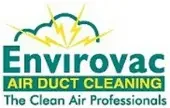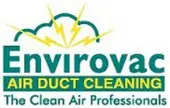As the air turns crisp and the leaves begin to change, many homeowners in Newberry, FL, start preparing their homes for the cooler months ahead. With the transition from the warm, humid days of summer to the cooler, drier air of fall and winter, it’s essential to pay close attention to your home’s air quality. One of the key components in maintaining a healthy indoor environment is selecting the right air filter for your HVAC system. But with so many options available, how do you know which one is right for you?
In this guide, we’ll explore the importance of air filters, how they work, and how to choose the best one for the fall and winter months in Newberry. By the end, you’ll have the knowledge you need to make an informed decision and ensure your home stays comfortable and healthy all season long.
Understanding Air Filters
What is an Air Filter?
An air filter is a crucial part of your HVAC (heating, ventilation, and air conditioning) system. It serves to trap dust, pollen, pet dander, mold spores, and other airborne particles, preventing them from circulating throughout your home. A clean air filter not only enhances indoor air quality but also protects your HVAC system from damage caused by dirt and debris buildup.
Why Are Air Filters Important?
Air filters play several vital roles in maintaining a comfortable home environment:
- Improving Indoor Air Quality: Poor indoor air quality can lead to a range of health issues, including allergies, asthma, and respiratory problems. According to the U.S. Environmental Protection Agency (EPA), indoor air can be up to five times more polluted than outdoor air. A good air filter can help mitigate these risks by removing harmful particles.
- Enhancing HVAC Efficiency: A clogged or dirty air filter can restrict airflow, causing your HVAC system to work harder. This not only increases energy consumption but can also lead to costly repairs. In fact, the U.S. Department of Energy estimates that regularly changing air filters can improve your HVAC system’s efficiency by 5% to 15%.
- Extending Equipment Lifespan: Keeping your air filter clean helps reduce wear and tear on your HVAC system. A well-maintained system can last 15 years or more, while a neglected one may require replacement in as little as 10 years.
Factors to Consider When Choosing Air Filters
MERV Ratings
One of the most critical factors in selecting an air filter is its Minimum Efficiency Reporting Value (MERV) rating. This scale ranges from 1 to 20, with higher numbers indicating greater filtration efficiency. Here’s a quick breakdown:
- MERV 1-4: These filters capture large particles like dust and pollen but are not suitable for those with allergies or asthma.
- MERV 5-8: Good for basic filtration; they can trap smaller particles like mold spores and pet dander.
- MERV 9-12: These filters offer excellent filtration for households with allergies, capturing a wide range of particles, including some bacteria and viruses.
- MERV 13-16: High-efficiency filters that can capture even smaller particles, including smoke and certain types of bacteria.
- MERV 17-20: Used in specialized applications, such as hospitals; these filters are usually not necessary for residential homes.
For most households in Newberry, a MERV rating of 9 to 12 is ideal, balancing filtration efficiency with airflow requirements.
Type of Filter
Different types of air filters serve various needs. Here are the most common types:
- Fiberglass Filters: These are affordable and disposable but offer minimal filtration. They are best for basic dust control.
- Pleated Filters: Made of polyester or cotton, pleated filters have a larger surface area, increasing their filtration efficiency. They can capture more particles compared to fiberglass filters and are available in various MERV ratings.
- HEPA Filters: High-Efficiency Particulate Air (HEPA) filters are the gold standard in air filtration. They can capture 99.97% of particles as small as 0.3 microns. While they provide exceptional air quality, they can restrict airflow, so it’s crucial to ensure your HVAC system can accommodate them.
- Electrostatic Filters: These filters use static electricity to attract and capture particles. They can be washable and reusable, making them a cost-effective option in the long run.
- Carbon Filters: Ideal for homes with strong odors or chemical sensitivities, carbon filters can absorb unpleasant smells and harmful gases.
Size Matters
Before purchasing an air filter, ensure you know the correct size for your HVAC system. Filters come in various dimensions, and using the wrong size can lead to poor filtration and airflow. Check your current filter or consult your HVAC manual for the appropriate dimensions.
Seasonal Considerations
As the seasons change, so do the types of particles circulating in the air. In Newberry, fall brings a mix of pollen, dust, and mold spores, while winter introduces drier air that can stir up allergens. Consider switching to a filter with a higher MERV rating during these transitional months to combat increased allergens and ensure optimal air quality.
Maintenance Tips for Your Air Filter
Regular Replacement
To maintain effective air quality, it’s essential to replace your air filter regularly. Most manufacturers recommend changing disposable filters every 1 to 3 months, depending on usage and household conditions. If you have pets or live in an area with high pollen levels, consider replacing your filter every month.
Clean Washable Filters
If you opt for a washable filter, ensure you clean it regularly according to the manufacturer’s instructions. A clean filter will perform more effectively and last longer.
Monitor Air Quality
Keep an eye on your home’s air quality. Signs that your air filter may need replacement include increased dust accumulation, reduced airflow, or unusual odors coming from your HVAC system.
Additional Tips for Improving Indoor Air Quality
In addition to choosing the right air filter, there are other steps you can take to enhance indoor air quality during the fall and winter months:
- Use a Humidifier: The dry air of winter can lead to increased dust and allergens. Using a humidifier can help maintain optimal humidity levels, reducing the amount of dust in the air.
- Schedule Regular HVAC Maintenance: Having your HVAC system serviced annually can help ensure optimal performance and air quality. Technicians can check your filters, clean the system, and identify potential issues before they become major problems.
- Keep Windows Closed: While the weather may be pleasant, keeping windows closed can help prevent outdoor allergens from entering your home.
- Invest in Air Purifiers: For extra protection, consider investing in an air purifier with a HEPA filter, particularly in bedrooms or common areas where you spend a lot of time.
For Air Filter Services in Newberry, FL, Contact Envirovac Air Duct Cleaning Today!
Choosing the right air filter for your HVAC system is a critical step in ensuring a comfortable and healthy home environment during the fall and winter months in Newberry, FL. By considering factors like MERV ratings, filter types, and regular maintenance, you can improve your indoor air quality and enhance the efficiency of your HVAC system.
At Envirovac Air Duct Cleaning, we understand the importance of clean air for your family’s health and comfort. Our team of professionals is dedicated to providing top-notch air filter services to ensure your HVAC system runs efficiently and your indoor air remains fresh and clean. Don’t wait for allergies or respiratory issues to strike—reach out to us today for expert advice and quality service. Your family deserves the best air quality possible, and we’re here to help!
 Skip to content
Skip to content



